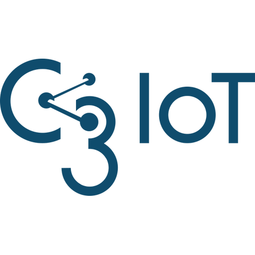Download PDF
Optimizing Semiconductor Manufacturing Yield with IoT

Technology Category
- Analytics & Modeling - Machine Learning
- Functional Applications - Manufacturing Execution Systems (MES)
Applicable Industries
- Equipment & Machinery
- Semiconductors
Applicable Functions
- Product Research & Development
- Quality Assurance
Use Cases
- Additive Manufacturing
- Manufacturing Process Simulation
Services
- Data Science Services
- Testing & Certification
The Challenge
A large U.S.-based manufacturer of high-performance semiconductors was facing a significant challenge in optimizing the manufacturing process of its wireless products. The company, which designs and delivers a broad set of cutting-edge products including radio frequency filters, amplifiers, modulators, attenuators, and more, was experiencing lower than expected overall yield in some of its most complex products. This was affecting the company's productivity and profitability, and there was a need for a solution that could predict low-yield wafers early in the process and identify process improvements to increase overall yield.
The Customer
Not disclosed
About The Customer
The customer is a large U.S.-based manufacturer of high-performance semiconductors. The company has a broad portfolio of cutting-edge products, including radio frequency filters, amplifiers, modulators, attenuators, and more. The company has a significant global presence with 35 facilities worldwide and employs 6,000 people. The company's products are widely adopted in leading mobile devices and IoT ecosystems. The company generates $3.6 billion in revenue annually.
The Solution
The manufacturer implemented C3 AI Process Optimization to address the challenge. This solution enabled the company to identify bad wafers, quantify time and costs saved, and tune design and manufacturing processes to optimize yields. The implementation of the project took 10 weeks from kickoff to pre-production application. During this period, a 3 terabyte unified data image of 830,000 files was created, along with more than 1,500 relevant features. The company also built 20 machine learning algorithms to predict die quality and 12 machine learning algorithms to predict the bottom 10% and 20% of low-yield wafers. The C3 AI Process Optimization user interface was configured to deliver insights on manufacturing optimization based on analysis.
Operational Impact
Quantitative Benefit
Related Case Studies.

Case Study
Smart Water Filtration Systems
Before working with Ayla Networks, Ozner was already using cloud connectivity to identify and solve water-filtration system malfunctions as well as to monitor filter cartridges for replacements.But, in June 2015, Ozner executives talked with Ayla about how the company might further improve its water systems with IoT technology. They liked what they heard from Ayla, but the executives needed to be sure that Ayla’s Agile IoT Platform provided the security and reliability Ozner required.

Case Study
IoT enabled Fleet Management with MindSphere
In view of growing competition, Gämmerler had a strong need to remain competitive via process optimization, reliability and gentle handling of printed products, even at highest press speeds. In addition, a digitalization initiative also included developing a key differentiation via data-driven services offers.

Case Study
Predictive Maintenance for Industrial Chillers
For global leaders in the industrial chiller manufacturing, reliability of the entire production process is of the utmost importance. Chillers are refrigeration systems that produce ice water to provide cooling for a process or industrial application. One of those leaders sought a way to respond to asset performance issues, even before they occur. The intelligence to guarantee maximum reliability of cooling devices is embedded (pre-alarming). A pre-alarming phase means that the cooling device still works, but symptoms may appear, telling manufacturers that a failure is likely to occur in the near future. Chillers who are not internet connected at that moment, provide little insight in this pre-alarming phase.

Case Study
Premium Appliance Producer Innovates with Internet of Everything
Sub-Zero faced the largest product launch in the company’s history:It wanted to launch 60 new products as scheduled while simultaneously opening a new “greenfield” production facility, yet still adhering to stringent quality requirements and manage issues from new supply-chain partners. A the same time, it wanted to increase staff productivity time and collaboration while reducing travel and costs.

Case Study
Integration of PLC with IoT for Bosch Rexroth
The application arises from the need to monitor and anticipate the problems of one or more machines managed by a PLC. These problems, often resulting from the accumulation over time of small discrepancies, require, when they occur, ex post technical operations maintenance.

Case Study
Robot Saves Money and Time for US Custom Molding Company
Injection Technology (Itech) is a custom molder for a variety of clients that require precision plastic parts for such products as electric meter covers, dental appliance cases and spools. With 95 employees operating 23 molding machines in a 30,000 square foot plant, Itech wanted to reduce man hours and increase efficiency.





